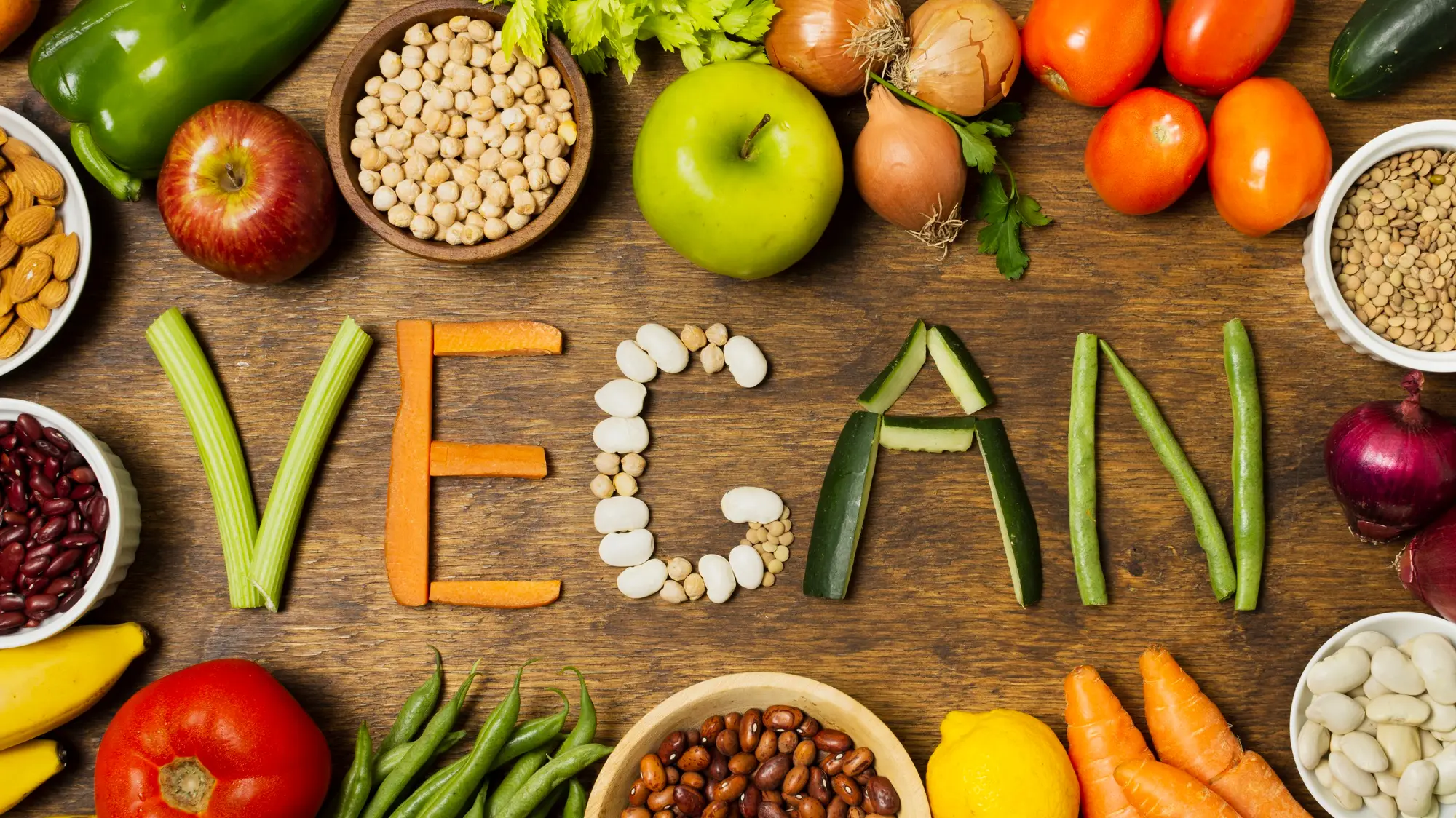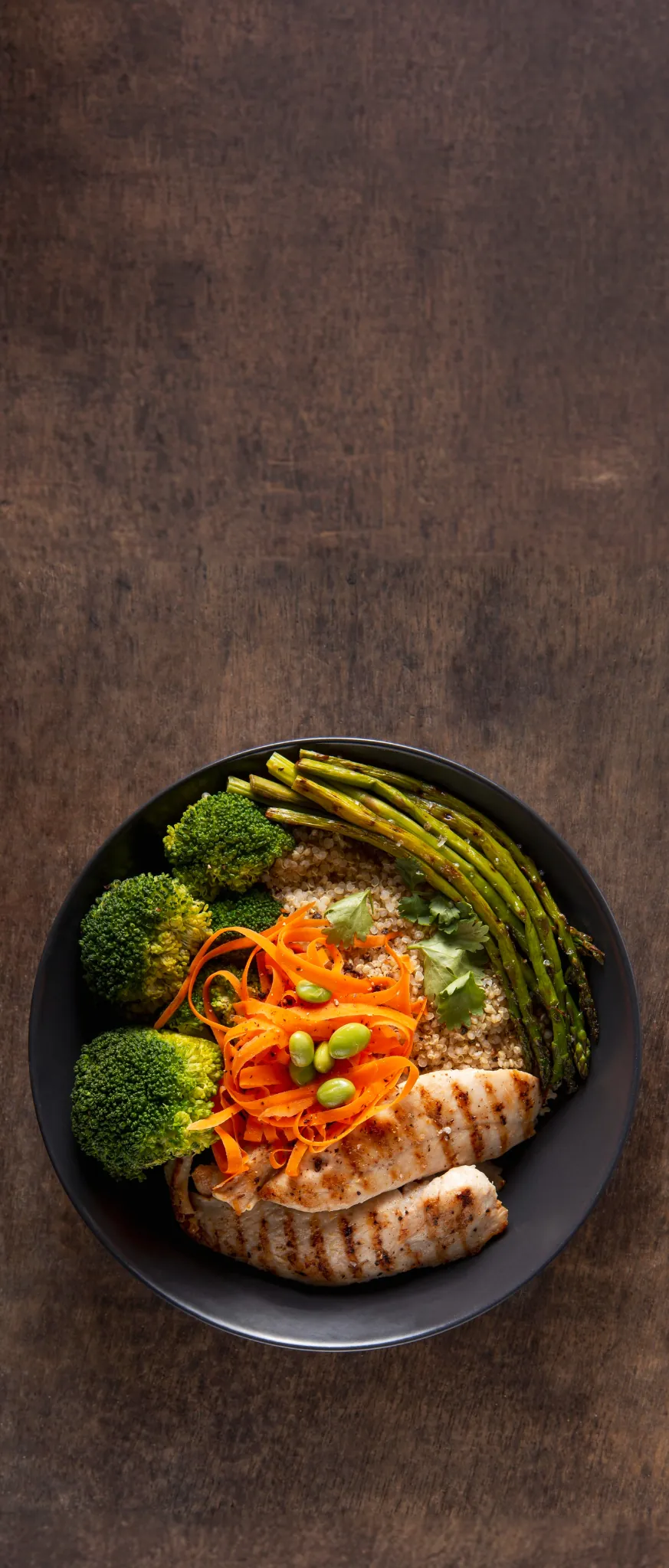20 Best Vegetarian Protein Sources
10 September 2024

Following a vegetarian diet offers numerous health benefits, but it can make reaching your daily protein requirement a bit more challenging. Typically, most adults should consume at least 50 grams of protein each day. Although it may take additional planning, there are many plant-based protein-rich foods you can incorporate into your diet. Below, you'll discover the best vegetarian protein sources for those on a plant-based diet.
Why is protein important?
Dietary protein is made up of amino acids, which are chemical building blocks that your body uses in numerous ways. Your body uses amino acids to grow and maintain your bones and muscles as you grow older, and play a role in regulating your hormones. The body can also convert amino acids into an energy source.
Why is protein intake challenging for a vegetarian diet?
Eating a vegetarian diet can provide many health benefits such as a reduced risk in chronic diseases like obesity, hypertension, diabetes, and heart disease. However, despite its health benefits, a vegetarian diet requires being more mindful of your protein consumption.
Ideally, adults should consume 0.75 grams per kilo of body weight per day. Eating this much protein can help reduce the loss of muscle and bone mass, and help keep your body energized. While many individuals consume protein through animal products, you can still reach your goals by eating plant-based foods. Foods such as beans, dairy, and eggs are just a few that can help you stay healthy and strong.
Although a vegetarian diet has numerous benefits, it's important to discuss dietary changes with your doctor before making a switch.
20 Best Vegetarian Protein Sources
Try the below plant-based proteins to help keep you full and fueled throughout the day.
1. Tofu
2. Seitan
3. Tempeh
4. Lentils
5. Beans
6. Chickpeas
7. Nutritional yeast
8. Nonfat Greek yogurt
9. Cottage cheese
10. Nonfat milk
11. Eggs
12. Parmesan cheese
13. Hemp seeds
14. Chia seeds
15. Almonds
16. Peanut butter
17. Edamame
18. Split peas
19. Quinoa
20. Oats
Looking for a delicious 'meat-like' substitute? Try tofu. It contains all the essential amino acids, making it a complete protein. Plus, you can make it in a variety of ways, whether it's pan-frying, or oven-baked. For 3.5 ounces of tofu, you'll consume between 12 and 20 grams of protein.
Seitan is a good swap when you're in the mood for stir fry or tacos, as it resembles the look and texture of real meat. This 'wheat meat' contains 25 grams of protein per 3.5 ounces, making it one of the most protein-dense, plant-based sources. Seitan also is a good source of selenium and contains iron, phosphorus, and calcium.
Tempeh, the fermented alternative to tofu, made from whole soybeans is a great plant-based protein. One cup of tempeh contains nearly 34 grams of protein, making it one of the most dense plant-based protein sources. You can pair tempeh with rice, or create a vegetarian burger out of it - there are plenty of options.
Rich in fiber and protein, lentils are a great quick protein source. These legumes contain 18 grams of protein per one cooked cup and can be made in a variety of ways. You can cook them into a meatless sloppy joe or make them the base of a salad. .
Whether they're pinto, kidney, or black, beans are the main ingredient in dishes all over the world. These legumes are both affordable and high in protein. Most beans contain roughly 15 grams of protein per cup and offer a good source of fiber, carbs, iron, and potassium. On their own, beans are an incomplete protein, but combine with rice or some corn and you've got all of your protein needs met.
Chickpeas, or garbanzo beans, are another popular item that can be used in a variety of ways. Similar to other beans, chickpeas also contain roughly 15 grams of protein per cup. When it comes to enjoying chickpeas, you can consume them raw, or roast them in the oven or an air fryer. If roasting or frying, top with your favorite seasonings and enjoy as a snack or add to a salad for extra crunch.
Nutritional yeast is a dairy-free, finely ground powder that's nutty and savory in flavor. This yeast is often used in vegan cheese sauces but can be added to various dishes like soups and casseroles. Half an ounce of nutritional yeast contains roughly eight grams of protein and three grams of fiber.
Greek yogurt is a great breakfast or snack option if you need a protein boost. You'll consume 17 grams of protein in just six ounces of Greek yogurt. You can even raise your protein content by adding nut butter or a homemade granola.
If you're in the mood for a high-protein snack, try cottage cheese. This curdled milk product contains 14 grams of protein per half cup of one percent milk-fat cottage cheese. Although the flavor is a bit more on the savory side, you can add cottage cheese to both sweet and savory dishes. Add it to your favorite salads or lasagna, or combine it with berries for a healthy sweet treat.
Milk is a quick and easy way to increase your protein intake each day. One cup of regular nonfat milk contains roughly eight grams of protein. You can drink the milk as is, or use it as an ingredient in a filling smoothie by adding protein powder and frozen fruit.
Eggs are one of the most nutritious foods on the market, as they contain a variety of vitamins, healthy protein, and fats. A single egg offers six grams of protein, five grams of fat, and is less than 80 calories. Plus, the opportunities to utilize eggs are endless. You can pair them with toast, or create your own healthy pancakes by combining them with a banana and baking soda.
Parmesan is a higher-protein cheese, with just over 10 grams of protein per ounce. Plus, this nutty cheese is packed with prebiotics, probiotic bacteria, and vitamins to help keep your gut healthy. This hard cheese is lower in lactose, making it a suitable choice for those who have sensitivities. You can enjoy this cheese with vegetables and seitan as a snack plate, or eat it on its own.
Hemp seeds are nutritious and high in protein and healthy fats. The small seed contains two essential fatty acids, omega-3 and omega-6, which can help reduce your risk of heart disease. Three tablespoons of hemp seeds contain nearly 10 grams of protein, alongside 1.2 grams of fiber. Hemp seeds have a mild, nutty flavor, making them a great addition to any salad or yogurt parfait.
Chia seeds are a key addition to your diet as they contribute to numerous health benefits, including lowering blood pressure. and cholesterol levels. These seeds are also nutritious in fiber, protein, omega-3 fatty acids, and antioxidants. For one ounce of chia seeds, you'll consume close to five grams of protein and 10 grams of fiber. To add even more protein, combine a few tablespoons with some protein milk to create a delicious chia seed pudding.
Almonds offer a perfect combination of fat, protein, and fiber - and they're low in carbs. They're a good vegetarian snack option that will give you that extra boost of protein and keep you full. One ounce contains roughly six grams of protein. You can enjoy them as is, sprinkle them onto a salad for added crunch, or transform them into almond butter.
Peanut butter is a nutritious spread you can add to a variety of items. smoothies, the options are endless. However, it's important to be mindful of your nut butter consumption as it can be higher in calories and fats. To ensure you're choosing the best kind for your body, opt for a peanut butter that contains minimal additives. Two tablespoons of this spread contain seven grams of protein.
Edamame can be enjoyed with many dishes. You can purchase these green soybeans shelled or unshelled depending on your preference. A quarter of a cup of shelled edamame contains five grams of protein. They're great to add to a rice bowl or salad, or use as a substitute for seitan and tofu.
Split peas contain roughly 16 grams of protein per cooked cup and offer a good source of fiber, iron, and potassium. These peas are the perfect additive to any soup or stew or can be enjoyed on their own.
Quinoa is a healthy grain to incorporate into your diet as it contains all nine essential amino acids, making it a complete protein. One cup of cooked quinoa contains eight grams of protein and five grams of fiber. This grain is also rich in folate, magnesium, iron, and zinc. Make it a base for any salad, or use it as a side for any meal.
Although not known as a protein, oats contribute protein, carbs, and fiber to your diet. Cooked oats contain about six grams of protein per cup, as well as iron, zinc, and Vitamin B. You can use oats as a granola base, or combine with milk and enjoy a creamy oatmeal.
Find vegetarian meal options at Meal Village
Now that you know which vegetarian items contain good sources of protein, it's time to create a protein-rich, nutritious meal. But instead of leaving the prepping, cooking, and cleaning to you, Meal Village. takes care of it all.
When you order from Meal Village, you'll receive protein-rich, delicious meals that are catered to your diet and delivered right to your home. Plus, there are no subscriptions or commitments. All you have to do is search through their weekly recipes and choose whichever meals you'd like to try. It's that simple. Healthy, flavorful vegetarian meals that will keep you full and satisfied are just a few clicks or a phone call away.



